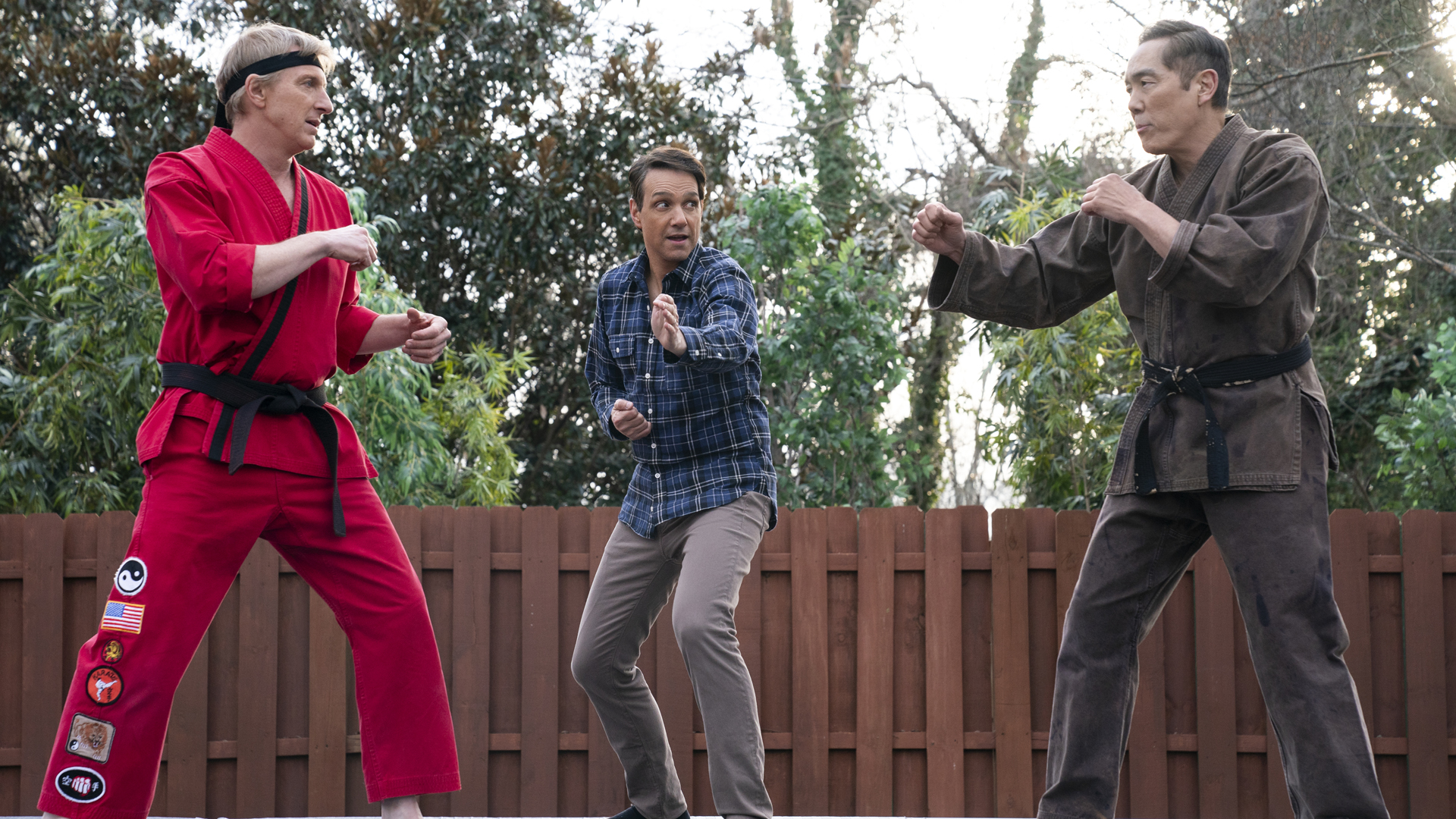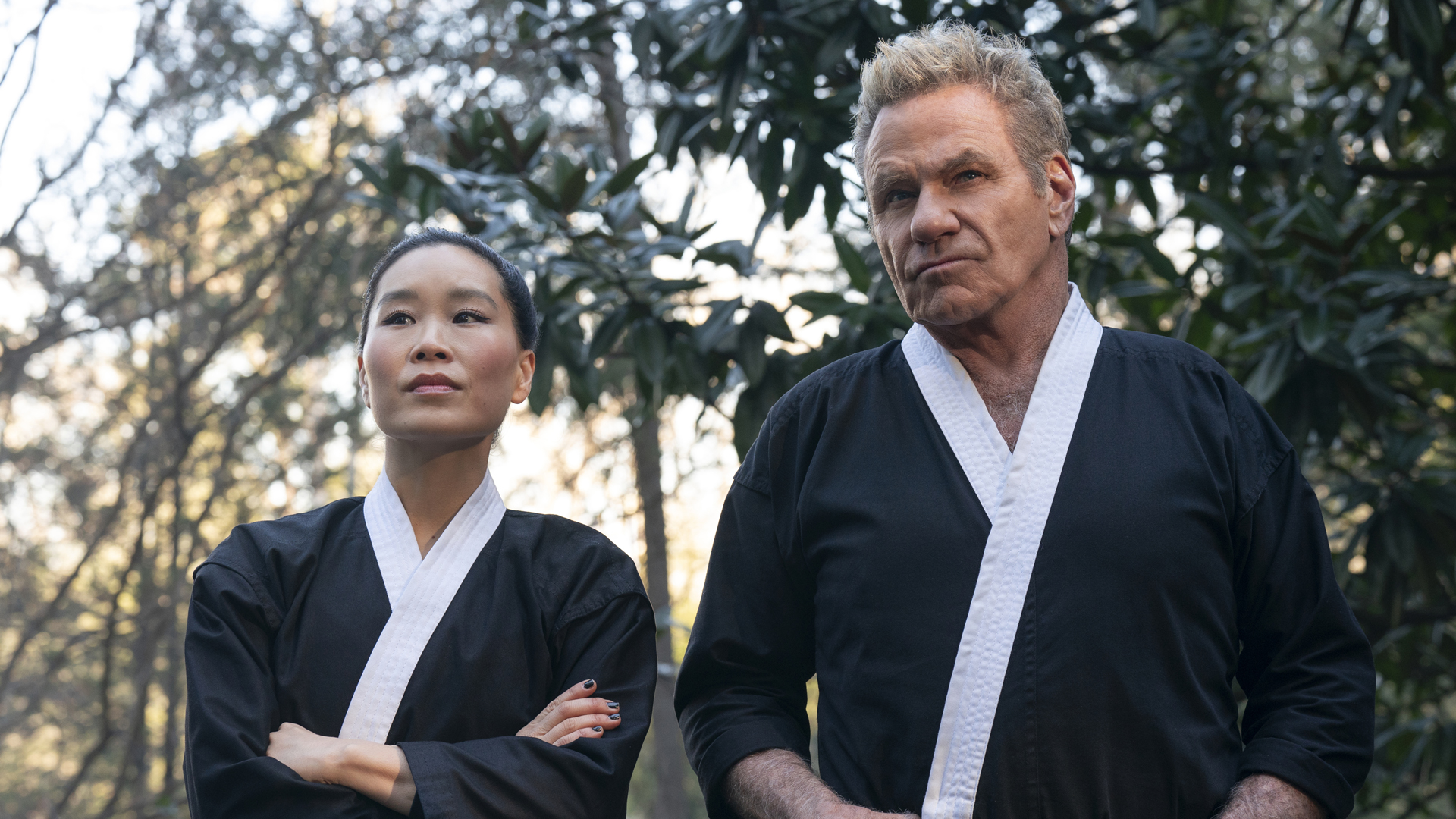Ultimate Kai Trumpeaf Guide: Tips, Tricks, And Strategies
Do you know about Kai the Hatchet Wielder?
Kai the Hatchet Wielder is a historical figure who lived during the Viking Age. He was a fierce warrior and a skilled berserker, who fought in many battles and raids. Kai was known for his bravery and his brutality, and he was feared by his enemies.
Kai was born in Norway in the late 9th century. He was the son of a chieftain, and he was raised to be a warrior. Kai was a natural fighter, and he quickly became one of the most skilled warriors in his clan. He was also a berserker, which means that he was able to enter a trance-like state during battle, in which he was said to be immune to pain and fear.
- Manuel Ferrera The Ultimate Guide To His Career Life And Impact
- Movies Tv Exploring The Complexities Of Desire Relationships
Kai fought in many battles and raids during his lifetime. He was a key member of the Great Heathen Army, which invaded England in 865 AD. Kai also fought in the Battle of Clontarf in 1014 AD, which was one of the largest battles in Irish history.
Kai was a ruthless warrior, but he was also a loyal friend and a generous leader. He was respected by his fellow Vikings, and he was feared by his enemies. Kai died in battle in 1028 AD, and he was buried in a ship burial, which was a great honor for a Viking warrior.
Kai the Hatchet Wielder
Importance and Historical Context
- Kai was a fierce warrior and a skilled berserker.
- He fought in many battles and raids during the Viking Age.
- He was a key member of the Great Heathen Army, which invaded England in 865 AD.
- He also fought in the Battle of Clontarf in 1014 AD, which was one of the largest battles in Irish history.
- Kai was a ruthless warrior, but he was also a loyal friend and a generous leader.
Kai's Legacy
- Kai is remembered as one of the greatest Viking warriors of all time.
- He is the subject of many sagas and legends.
- His name has become synonymous with bravery and ferocity.
Kai the Hatchet Wielder
Kai the Hatchet Wielder was a fierce Viking warrior and berserker who lived during the Viking Age. He was known for his bravery, brutality, and skill in battle.
- Subhashree Sahu Rising Star Inspiring Journey And Her Impact On Indian Cinema
- Richard Sandrak Now The Fascinating Journey Of A Child Bodybuilder
- Warrior: Kai was a skilled and experienced warrior, fighting in many battles and raids during the Viking Age.
- Berserker: Kai was a berserker, able to enter a trance-like state during battle, in which he was said to be immune to pain and fear.
- Loyalty: Kai was a loyal friend and follower, fighting alongside his fellow Vikings in many battles.
- Leadership: Kai was a respected leader, commanding his own ship and crew.
- Ruthlessness: Kai was a ruthless warrior, known for his brutality and ferocity in battle.
- Generosity: Kai was a generous leader, sharing his wealth and spoils of war with his followers.
- Legacy: Kai is remembered as one of the greatest Viking warriors of all time, his name becoming synonymous with bravery and ferocity.
Kai's story is one of bravery, loyalty, and ferocity. He was a true Viking warrior, living and dying by the code of honor and violence that defined the Viking Age.
| Name | Birth | Death | Occupation |
|---|---|---|---|
| Kai | Late 9th century | 1028 AD | Viking warrior and berserker |
Warrior
Kai's skill and experience as a warrior were crucial to his success in battle. He was a master of weapons and combat techniques, and he was always willing to fight for what he believed in. Kai's was also a key factor in his rise to power. He was able to unite his people and lead them to victory in many battles.
- Leadership: Kai was a natural leader, and he was able to inspire his followers to fight for him. He was always at the front of the battle, and he was never afraid to take risks. Kai's leadership was essential to his success as a warrior.
- Loyalty: Kai was a loyal friend and follower, and he was always willing to fight for his people. He was never one to back down from a challenge, and he was always willing to put himself in harm's way for his comrades. Kai's loyalty was one of his greatest strengths.
- Ferocity: Kai was a fierce warrior, and he was not afraid to use violence to achieve his goals. He was always willing to fight to the death, and he never gave up. Kai's ferocity was one of the things that made him such a successful warrior.
- Strategy: Kai was a skilled strategist, and he was always able to outsmart his opponents. He was always one step ahead of his enemies, and he was always able to anticipate their moves. Kai's strategic thinking was one of the keys to his success as a warrior.
Kai's skill and experience as a warrior were a major factor in his success as a leader. He was able to unite his people and lead them to victory in many battles. Kai's legacy as a warrior is one of bravery, loyalty, and ferocity. He is remembered as one of the greatest Viking warriors of all time.
Berserker
Berserkers were fierce Viking warriors who fought in a trance-like state, often wearing bear or wolf skins and entering a state of frenzy. They were said to be immune to pain and fear, and they were known for their ferocity and brutality in battle.
- Role of Berserkers: Berserkers played a key role in Viking raids and battles. They were often used as shock troops, and they were feared by their enemies for their ferocity and brutality.
- Psychological Effects: Entering a berserker trance likely involved a combination of psychological and physiological factors. The Vikings believed that berserkers were possessed by spirits or gods, and this belief may have helped to create a self-fulfilling prophecy, in which the warriors truly believed they were invincible.
- Physiological Effects: There is some evidence to suggest that berserkers may have used drugs or alcohol to induce a trance state. However, it is also possible that the trance state was caused by a combination of psychological factors, such as extreme stress and adrenaline.
- Implications for Kai the Hatchet Wielder: Kai's status as a berserker gave him a significant advantage in battle. He was able to fight with ferocity and brutality, and he was not afraid of pain or death. This made him a formidable opponent, and it helped him to become one of the most famous Viking warriors of all time.
Berserkers were a unique and fascinating part of Viking culture. They were feared by their enemies and respected by their comrades. Kai the Hatchet Wielder was one of the most famous berserkers of all time, and his legacy continues to inspire awe and admiration.
Loyalty
Loyalty was a key component of Kai's character. He was a loyal friend and follower, and he was always willing to fight alongside his fellow Vikings. This loyalty was one of the things that made Kai such a successful warrior and leader.
In battle, Kai could always count on his fellow Vikings to have his back. He knew that they would fight for him, and he would fight for them. This loyalty gave Kai a sense of confidence and strength, and it helped him to overcome his enemies.
Kai's loyalty also extended to his family and friends. He was always there for them, and he was always willing to help them in any way that he could. Kai's loyalty was a source of strength for his family and friends, and it helped them to through difficult times.
Kai's loyalty is an example of the importance of loyalty in Viking culture. The Vikings were a close-knit people, and they relied on each other for survival. Loyalty was essential for maintaining the strength and unity of the Viking community.
Kai's loyalty is also an example of the importance of loyalty in general. Loyalty is a virtue that is valued in all cultures, and it is essential for building strong relationships and communities.
Leadership
Kai's leadership was a key component of his success as a Viking warrior and berserker. He was able to unite his followers and lead them to victory in many battles. His leadership was also essential for maintaining the discipline and morale of his crew, especially during long and dangerous voyages.
One of the most important qualities of a good leader is the ability to inspire others. Kai was able to do this by his own example. He was a brave and courageous warrior, and he was always willing to fight alongside his men. He was also a fair and just leader, and he always treated his followers with respect.
Kai's leadership is an example of the importance of leadership in any organization. A good leader can make all the difference between success and failure. Kai's leadership was essential for the success of his Viking raids and battles, and it is a model for leaders today.
Ruthlessness
Kai's ruthlessness was a key component of his success as a Viking warrior and berserker. He was not afraid to use violence to achieve his goals, and he was always willing to fight to the death. This ruthlessness made him a formidable opponent, and it helped him to become one of the most famous Viking warriors of all time.
There are many examples of Kai's ruthlessness in battle. In one instance, he is said to have killed an entire enemy ship's crew with his bare hands. On another occasion, he is said to have fought his way through a group of, killing them all with his axe.
Kai's ruthlessness was not just a product of his berserker rage. It was also a deliberate strategy. He knew that fear was a powerful weapon, and he used it to his advantage. He would often attack his enemies with overwhelming force, and he would not hesitate to kill anyone who got in his way.
Kai's ruthlessness was a key factor in his success as a Viking warrior. It allowed him to defeat his enemies and achieve his goals. However, it is important to remember that ruthlessness is a double-edged sword. It can be effective in the short term, but it can also lead to long-term problems. In Kai's case, his ruthlessness eventually led to his downfall.
Generosity
Kai's generosity was a key component of his success as a Viking leader. He knew that his followers were loyal to him because he was generous with them. He shared his wealth and spoils of war with them, and he always made sure that they were well-fed and well-equipped.
Kai's generosity also helped to create a sense of community among his followers. They knew that they could count on him to provide for them, and they were willing to fight for him in return. This sense of community was essential for Kai's success as a leader.
Kai's generosity is an example of the importance of generosity in leadership. A generous leader is able to create a sense of loyalty and community among their followers. This can lead to greater success for the leader and their organization.
Legacy
Kai's legacy is one of bravery, ferocity, and leadership. He is remembered as one of the greatest Viking warriors of all time, and his name has become synonymous with these qualities. Kai's legacy is important because it serves as a reminder of the Viking Age, a time of great violence and adventure. It also serves as a reminder of the importance of bravery, ferocity, and leadership in times of war.
Kai's legacy is also important because it provides a model for modern leaders. Kai was a successful leader because he was able to inspire his followers and lead them to victory. He was also able to create a sense of community among his followers, and he was always willing to fight for them. Kai's legacy is a reminder that good leaders are able to inspire, lead, and fight for their followers.
Kai's legacy is a complex one. He was a violent and ruthless warrior, but he was also a loyal friend and a generous leader. He was a man of contradictions, but he was also a man of great character. Kai's legacy is a reminder that even the most complex and contradictory figures can leave a lasting legacy.
FAQs on "Kai the Hatchet Wielder"
This section provides answers to frequently asked questions about Kai the Hatchet Wielder, a legendary Viking warrior and berserker.
Question 1: Was Kai the Hatchet Wielder a real person?
Answer: Yes, Kai the Hatchet Wielder was a real person. He was a Viking warrior and berserker who lived during the Viking Age. He was known for his bravery, ferocity, and skill in battle.
Question 2: What is the significance of Kai the Hatchet Wielder's name?
Answer: Kai's name is significant because it reflects his reputation as a fierce and skilled warrior. The word "Kai" means "warrior" in Old Norse, and the word "hatchet" refers to the weapon he was known for using in battle.
Question 3: What is Kai the Hatchet Wielder's legacy?
Answer: Kai the Hatchet Wielder's legacy is one of bravery, ferocity, and leadership. He is remembered as one of the greatest Viking warriors of all time, and his name has become synonymous with these qualities.
Question 4: What can we learn from Kai the Hatchet Wielder?
Answer: We can learn many things from Kai the Hatchet Wielder, including the importance of bravery, ferocity, and leadership. We can also learn from his example of generosity and loyalty.
Summary: Kai the Hatchet Wielder was a real person who lived during the Viking Age. He was a fierce and skilled warrior who is remembered as one of the greatest Viking warriors of all time. His legacy is one of bravery, ferocity, and leadership.
Conclusion
Kai the Hatchet Wielder was a legendary Viking warrior and berserker who lived during the Viking Age. He was known for his bravery, ferocity, and skill in battle. Kai's legacy is one of bravery, ferocity, and leadership. He is remembered as one of the greatest Viking warriors of all time.
Kai's story is a reminder of the importance of bravery, ferocity, and leadership in times of war. It is also a reminder that even the most complex and contradictory figures can leave a lasting legacy.
- Nikki Catsouras Death The Tragic Story That Shook The Nation
- Movierulz 5 Your Ultimate Guide To Streaming Movies In 2023

Cobra Kai season 6 part 1 is finally on Netflix tomorrow here are 3

Cobra Kai season 6 part 2 Netflix release date, trailer, confirmed

Cobra Kai season 6 part 2 Netflix release date, trailer, confirmed